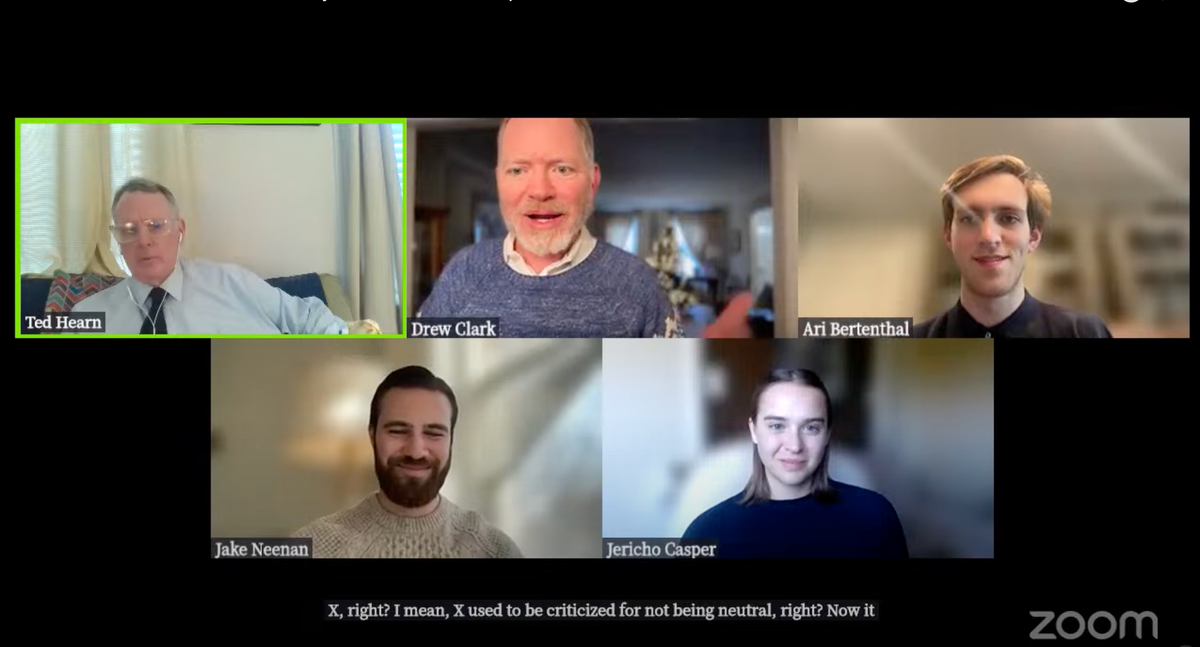Broadband Breakfast Staff Review Key Developments of 2024, Preview Trump Era
The discussion was part of Broadband Breakfast's '12 Days of Broadband' year-end coverage.

WASHINGTON, Dec. 23, 2024 - In their final live online event of the year, Broadband Breakfast's editorial team examined major telecommunications developments of 2024 while highlighting key changes facing the industry as it prepares for another Trump administration.
The BEAD Rollout
Reflecting on the anticipated rollout of BEAD funding, Reporter Jake Neenan noted the progress states have made in administering the program, with several finalizing grant applications. However, this rollout occurs against the backdrop of Republican leaders signaling major changes to the program's rules, particularly regarding fiber preferences.
“It’s getting to the point where it would be more disruptive if one were to change the process under which projects were actually selected,” said Neenan, noting that some states have already issued final proposals while others continue with their application processes. “Permitting, in particular, is going to become a much bigger issue next year.”

Reporter Jericho Casper highlighted the tension between favoring fiber-based networks and considering alternative technologies like Starlink. “There’s a huge barrier for many people in accessing [the equipment for] Starlink,” she said. “The cost of the router is about $600, and the monthly fee is $110. That’s about $30 more expensive than the average [broadband] plan.”
The gap left by the Affordable Connectivity Program’s end
Panelists also discussed the fallout from the ACP’s expiration earlier this year. Casper described the financial burden this placed on Americans.
“Fifty-three percent of people reported struggling to pay their internet bills on top of other utilities this year,” she said. “When the ACP expired, we saw more than half of participants either downgraded or dropped their service entirely.”
Casper noted that state-level initiatives have stepped in to address the gap. “New York’s Affordable Broadband Act requires providers in the state to offer $20 and $15 plans for different service offerings to low-income folks,” she said. “That’s really setting a precedent going into 2025.”
Despite challenges from internet providers, the Supreme Court's refusal to hear the case means the law will go into effect next month.
“I think ISPs should be shaking in their boots a little bit that other states might follow suit,” noted Casper. “This is something states are going to take the reign on.”
Former Reporter Ari Bertenthal also emphasized the overwhelming demand for digital equity initiatives, with the competitive grant program receiving $6.5 billion in funding requests - more than five times its $1.25 billion budget. This heavy interest comes despite opposition from incoming Commerce Committee leadership.
Brendan Carr’s chairmanship and the FCC’s future
As Brendan Carr prepares to take over as FCC chairman in January, panelists speculated about his approach to regulation. Managing Editor Ted Hearn identified Section 230 reform as a key focus for Carr.
"I think he's going to propose rules that if big tech moderation practices are not done in good faith, they will lose Section 230 protections," said Hearn.
Hearn also highlighted potential shifts in media regulation. “There’s a good chance we’ll see a serious license revocation proceeding against one of the [major broadcasters], over the lack of content diversity,” he said.
The regulatory landscape at the FCC faces particular uncertainty following the Supreme Court's Loper Bright decision limiting agency deference.
“I don't expect the commission's going to be relying on Chevron for anything,” Hearn explained. "If the FCC doesn't come up with the best reading of the law, the FCC is going to lose. Though he noted Justice Brett Kavanaugh's caution against overreading the decision's impact when Congress provides broad authorization.
Looking ahead to 2025
Looking ahead to 2025, Hearn outlined two emerging industry challenges. The growing energy demands of big tech companies, which he suggested might drive a revival of nuclear power, could spark conflicts with environmental groups.
He also predicted that network security will become a major industry focus following recent hurricane-related outages, with potential pushes to bury more infrastructure to protect against natural disasters.
The discussion was part of Broadband Breakfast's "12 Days of Broadband" year-end coverage, which examines key developments from 2024 and their implications for the year ahead.










Member discussion